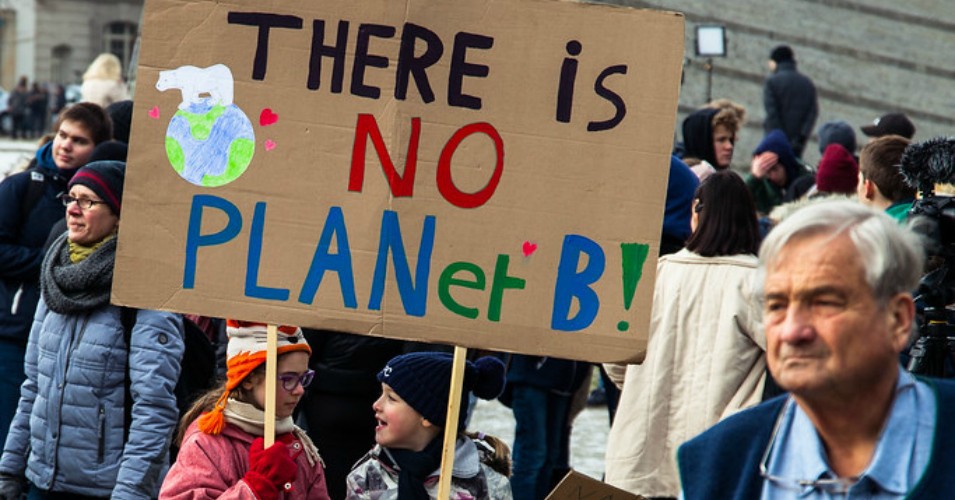
Will the new IPCC report on mitigation detail and recommend supply-side pathways and policies to mitigate climate change?
Will the report even mention regulating a phase out of fossil fuel production? Despite the increasing severity of climate impacts and the daunting timeline for mitigation needed to have even a fifty-fifty chance of staying climate safe? Or will supply-side pathways and policies and their supporters remain outside the fence as they were at COP26 ?
The third IPCC Sixth Assessment Report (AR6), this time on climate mitigation, is scheduled to be released in early April. Mitigation is crucial. There is a new appreciation of how close human induced warming is taking us to ‘dangerous climate change‘, a potential cascade of feedbacks, and even as a threat multiplier in a nuclear armed world. Effective mitigation – the reduction of greenhouse gas (GHG) emissions – is imperative. The Working Group III (WGIII) report on the science of climate mitigation is eagerly awaited.
After three decades of failed mitigation, three decades of failing to bend the emissions curve, and with impossible emission reduction needed in less than a decade – a reduction of at least half of global greenhouse gas (GHG) emissions by 2030 – what will the IPCC experts advise?
On the eve of the mitigation report there is an important new report from the Tyndall Center for Climate Change Research: Phaseout Pathways for Fossil Fuel Production that makes a strong case for focusing mitigation efforts on phasing out fossil fuel production (instead of indirectly reducing emissions by promoting renewable energy to displace fossil fuels in an energy transition). Wealthy, developed countries like the US, Canada or Australia would have to wind-down all fossil fuel production by 2034 – 74% by 2030.
Supply-side pathways and policies could be a failsafe plan for needed but elusive emission reduction; a direct conception of climate mitigation.
Will the new report consider a reduction of fossil fuel production (and therefor use) on a schedule based upon the best carbon budget science? A regulated phase out of fossil fuel production, a managed decline either nationally or in carbon clubs of nations signing a carbon nonproliferation treaty? Our climate predicament is so dire and the emergency timeline so imperative that every possible mitigation pathway and policy should be under consideration.
The energy transition was the logical mitigation plan that developed in the 90s. Without alternative sources of energy we could not stop using fossil fuels. There was time (and carbon budget) for this energy transition if the powerful actors of the time hadn’t been far more concerned with protecting the existing economy from needed climate mitigation.
Such an organized and well supported decarbonization plan could have effectively removed most fossil fuel use by now and we wouldn’t have an existential crisis hanging over our heads. But energy transitions take decades we no longer have; historically, new energy sources add to instead of displacing existing sources of energy; and building renewable capacity of a scale needed to displace 50% of fossil fuel use in a decade is now delusional. The energy transition is not fit for purpose, a Rube Goldberg machine, and is now just a delayer strategy. It hasn’t worked, hasn’t bent the emissions curve, and should be expected to fail to even peak emissions over the next, crucial, decade.
An energy transition to net zero by 2050 would be difficult but possible; an energy transition to reduce emissions by half by 2030 is delusional. Consider EVs, for only one example: is it possible to get half the miles traveled in the US or globally in EVs by 2030? Such a quick turnover isn’t possible (and would probably demand much higher fossil fuel usage in the crucial short term to build the EVs anyway)?
Climate mitigation has always been shoehorned into what is possible in political and economic business as usual and a regulated wind-down of fossil fuels is definitely not allowed. The energy transition promised effective mitigation that was incremental, transformative action over many decades using market-based policies and instruments; it promised to make money and didn’t threaten disruption and would only tweak our very fortunate lifestyles. It would seem that the WGIII report will not deviate from this orthodox decarbonization conception despite the growing existential risk, urgent timeline and history of failure.
This long time climate activist would be extremely happy to be proved wrong.
Bill Henderson is a long time climate activist and Countercurrents contributor – bhenderson(at)dccnet(dot)com














































